Premium Only Content
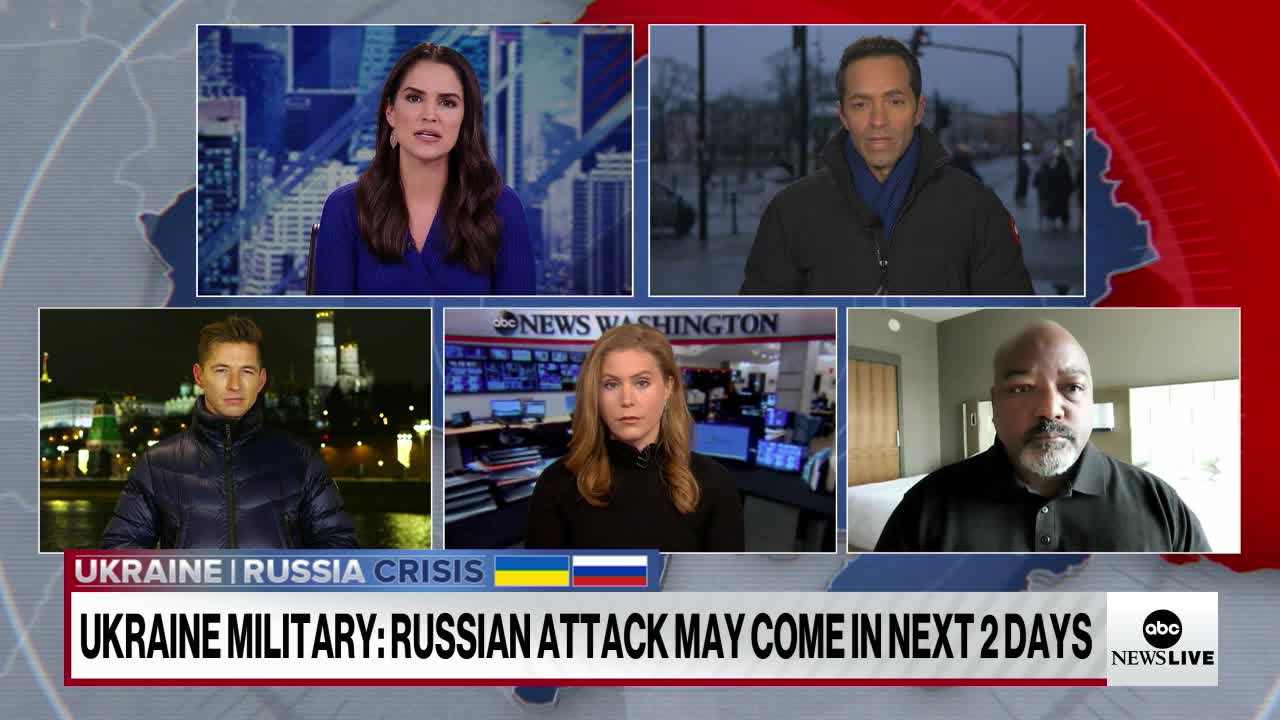
Russian Attack Feared In The Next 2 Days
KYIV, Ukraine -- The Kremlin said rebel leaders in eastern Ukraine asked Russia for military assistance Wednesday to help fend off Ukrainian “aggression” while Ukraine declared a nationwide state of emergency amid growing fears of an all-out invasion by Russian troops.
Fears of an imminent Russian offensive against its neighbor soared after President Vladimir Putin received authorization to use military force outside his country, and the West responded with sanctions.
Kremlin spokesman Dmitry Peskov said the rebel chiefs wrote to Putin, pleading with him to intervene after Ukrainian shelling caused civilian deaths and crippled vital infrastructure.
The appeal comes after Putin recognized the independence of Russia-backed rebel regions in eastern Ukraine and signed friendship treaties with them.
In Ukraine, lawmakers approved President Volodymyr Zelenskyy’s decree that imposes the measure for 30 days starting Thursday. The state of emergency allows authorities to impose curfews and restrictions on movement, block rallies and ban political parties and organizations “in the interests of national security and public order.”
The action reflected the increasing concern by Ukrainian authorities after weeks of trying to project calm. The Foreign Ministry advised against travel to Russia and recommended any Ukrainians there to leave immediately, saying Moscow’s “aggression” could lead to a significant reduction in consular services.
“For a long time we refrained from declaring a state of emergency ... but today the situation has become more complicated,“ National Security and Defense Council head Oleksiy Danilov told the parliament, emphasizing that Moscow's efforts to destabilize Ukraine represented the main threat.
“According to the intelligence of our partners, according to our data, according to our analysts, the capture of our country is impossible without internal destabilization," Danilov said.
Ukrainian authorities have repeatedly voiced concern that pro-Russian groups inside the country could try to destabilize it, including a pro-Moscow political party represented in parliament.
The introduction of the state of emergency follows Putin’s move Monday to recognize the independence of rebel regions in eastern Ukraine, where a nearly eight-year conflict has killed over 14,000 people. Putin has sanctioned the deployment of Russian troops there to “maintain peace.”
Russia on Wednesday evacuated its embassy in Kyiv as hopes for a diplomatic way out of a new, potentially devastating war in Europe waned. The U.S. and key European allies accused Moscow of crossing a red line Tuesday in rolling over Ukraine's border into separatist eastern regions known as the Donbas, with some calling it an invasion.
A senior U.S. defense official in Washington said the Russian forces along Ukraine’s borders are “as ready as they can be” for an invasion, with about 80% in what the U.S. considers "forward positions, ready to go” within 5 kilometers to 50 kilometers (3 to 30 miles) of the border.
The official, who spoke on condition of anonymity to discuss sensitive information, added. "We still cannot confirm that Russian forces have moved into the Donbas area.”
In response to Russia's action, President Joe Biden allowed sanctions to move forward against the company that built the Russia-to-Germany Nord Stream 2 gas pipeline and against the company’s CEO.
“Today, I have directed my administration to impose sanctions on Nord Stream 2 AG and its corporate officers,” Biden said in a statement. “As I have made clear, we will not hesitate to take further steps if Russia continues to escalate.”
Germany said Tuesday it was indefinitely suspending the project, after Biden charged that Putin had launched “the beginning of a Russian invasion of Ukraine” by sending troops into the separatist regions of eastern Ukraine. The pipeline is complete but has not yet begun operating.
Biden waived sanctions last year against Nord Stream 2 AG, when the project was almost completed, in return for an agreement from Germany to take action against Russia if it used gas as a weapon or attacked Ukraine.
Putin said Tuesday he hadn’t yet sent any Russian troops into the rebel regions contrary to Western claims, and Donetsk rebel leader Denis Pushilin insisted Wednesday there were no Russian troops in the region even though a local council member claimed the previous day they had moved in.
Ukraine’s Minister for Digital Transformation Mykhailo Fedorov said a wave of denial-of-service attacks targeted official websites and some banks Wednesday, knocking sites of the parliament, cabinet and Foreign Ministry offline and causing interruptions or delays to the sites of the defense and interior ministry, which controls the police.
Many of the same sites were similarly knocked offline in attacks last week that the U.S. and U.K. governments quickly blamed on Russia’s GRU military intelligence agency. Such attacks barrage websites with junk traffic, rendering them unreachable. Wednesday’s DDoS attacks appeared to have less impact than the earlier onslaught, with targeted sites soon reachable again -- as emergency responders blunted them.
These were just the latest in a series of signs of escalating tensions. Kyiv recalled its ambassador to Russia and considered breaking all diplomatic ties with Moscow; dozens of nations further squeezed Russian oligarchs and banks out of international markets; the U.S. repositioned additional troops to NATO’s eastern flank bordering Russia; and the top U.S. diplomat canceled a meeting with his Russian counterpart.
Already, the threat of war has shredded Ukraine's economy and raised the specter of massive casualties, energy shortages across Europe and global economic chaos.
Even as the conflict took a new, dangerous turn, leaders warned it could still get worse. Putin has yet to unleash the force of the 150,000 troops massed on three sides of Ukraine, while Biden held back on even tougher sanctions that could cause economic turmoil for Russia but said they would go ahead if there is further aggression.
European Union sanctions against Russia took effect, targeting several companies along with 351 Russian lawmakers, who voted for a motion urging Putin to recognize the rebel regions, and 27 senior government officials, business executives and top military officers.
Ukrainian Foreign Minister Dmytro Kuleba urged Western leaders to ramp up sanctions to “stop Putin,” tweeting: “Hit his economy and cronies. Hit more. Hit hard. Hit now.”
The Russian Foreign Ministry has shrugged off the sanctions, saying that “Russia has proven that, with all the costs of the sanctions, it is able to minimize the damage.”
In Ukraine's east, where an eight-year conflict between Russia-backed separatists and Ukrainian forces has killed nearly 14,000 people, violence also spiked again. One Ukrainian soldier was killed and six more were injured after rebel shelling, the Ukrainian military said. Separatist officials reported several explosions on their territory overnight and three civilian deaths.
Facing a barrage of criticism at the 193-member United Nations General Assembly, Russia’s U.N. ambassador Vassily Nebenzia warned Ukraine that Russia will montor the cease-fire in the east and emphasized that “no one intends to go softly, softly with any violators.” “A new military adventure” by Kyiv “might cost the whole of Ukraine very dearly,” he warned ominously.
After weeks of rising tensions, Putin's steps this week that dramatically raised the stakes. First, he recognized the independence of those separatist regions. Then, he said that recognition extends even to the large parts of the territories now held by Ukrainian forces, including the major Azov Sea port of Mariupol.
Finally, lawmakers gave him authority to use military force outside the country — effectively formalizing a Russian military deployment to the rebel regions.
Putin laid out three conditions that he said could end the standoff, urging Kyiv to recognize Russia’s sovereignty over Crimea, the Black Sea peninsula that Moscow annexed from Ukraine in 2014, to renounce its bid to join NATO and partially demilitarize. Ukraine long has rejected such demands.
As rhetoric in Russia and the West toughened, British Defense Secretary Ben Wallace recalled how the British army “kicked the backside” of Russia during the Crimean War in the 19th century. Russia’s Defense Ministry spokesman Igor Konashenkov fired back, dismissing Wallace’s claims as “mythology” and advising British soldiers to study the history of Russia to avoid “enriching our shared military history with their lives for the pleasure of poorly educated British politicians.”
-
 LIVE
LIVE
Barry Cunningham
1 hour agoPRESIDENT TRUMP MAKES SPEECH ABOUT AI
1,683 watching -
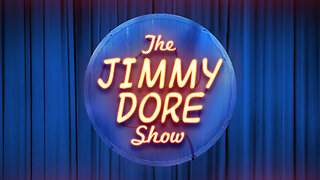 LIVE
LIVE
The Jimmy Dore Show
8 minutes agoJon Stewart LIVID About Colbert Show Cancelation! Trump ADMITS His Name Is in the Epstein Files!
865 watching -
 13:18
13:18
The Rad Factory
7 hours ago $0.02 earnedIs This E Scooter Worth $900?
73 -
 54:38
54:38
The Dr. Ardis Show
6 hours ago $1.52 earnedThe Dr. Ardis Show | 5 Ways Alcohol Destroys Your Health | Episode 07.23.2025
1.83K3 -
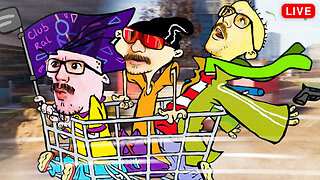 LIVE
LIVE
RalliedLIVE
5 hours ago $1.36 earned10 WINS WITH THE SHOTTY BOYS
179 watching -
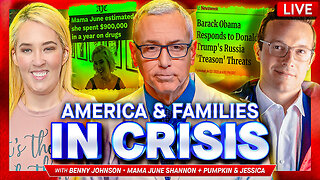 1:14:33
1:14:33
Dr. Drew
5 hours agoBenny Johnson & Mama June: America & Families In Crisis w/ Pumpkin & Jessica (The Double Feature Nobody Expected) – Ask Dr. Drew
14.2K -
 4:00:56
4:00:56
Viss
4 hours ago🔴LIVE - How to Consistently Win in PUBG!
9011 -
 LIVE
LIVE
StoneMountain64
5 hours agoHIDE AND SEEK. IM GOING TO FIND YOU.
55 watching -
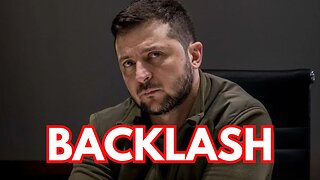 13:40
13:40
Preston Stewart
7 hours ago $0.33 earnedMajor Protests Erupt in Ukraine
5.08K19 -
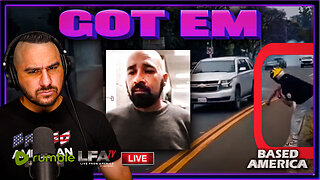 LIVE
LIVE
LFA TV
20 hours agoLFA TV ALL DAY STREAM - WEDNESDAY 7/23/25
1,297 watching